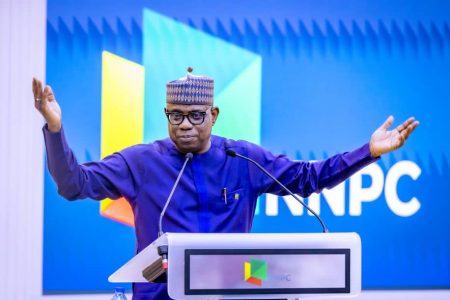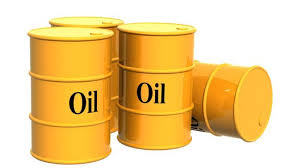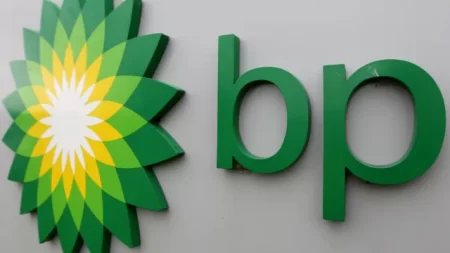 03 February 2014, Lagos – Lawmakers in the House of Representatives have admitted to being under pressure to scuttle the passage of the Petroleum Industry Bill, PIB, from International Oil Companies, IOCs, operating in the country. This will be the first public admission by the legislators as to why the PIB has remained at the National Assembly for about a decade.
03 February 2014, Lagos – Lawmakers in the House of Representatives have admitted to being under pressure to scuttle the passage of the Petroleum Industry Bill, PIB, from International Oil Companies, IOCs, operating in the country. This will be the first public admission by the legislators as to why the PIB has remained at the National Assembly for about a decade.
Specifically, the House Committee on Environment, last week, promised to proceed with the passage of the bill notwithstanding pressures from the IOCs. The Committee, which made the disclosure at a public hearing on the Bonga oil spill said, “What you (IOCs) do to stop the passage of the bill will not stop us from passing the bill into law.”
The Committee Chairman, Mrs. Linda Ekwunife, accused Shell of leading the pressure against the passage of the bill, adding that the bill will be passed no matter what. The Committee’s declaration was quite comforting as Nigerians had begun to wonder why the legislators were dilly dallying on the passage of the bill into law.
The IOCs have constantly criticised the PIB, saying it is the “harshest in the world” because of the fiscal terms which require them to give up some more of their profits and give more money to the Federal Government to provide essential services for the people. The Chairman, Oil Producers Trade Section, OPTS, the trade group of the IOCs, Mr. Mark Ward, had predicted a sharp decline in current oil and gas production from 63 percent to about 25 percent.
Ward, who is also the Managing Director, Mobil Producing Nigeria Unlimited, said current fiscal proposals in the bill could translate to loss of investments of about $185 billion in new projects. But the IOCs criticisms were last year set aside by the World Bank’s independent assessment of the bill. The International Monetary Fund, IMF, the investment arm of the World Bank, declared the PIB as, “One of Nigeria’s most important pieces of legislation, because it proposes massive industry reform.”
The Fund, however, noted that the bill was “… at risk of being picked apart by opponents,” and added that it “… looked forward to an early passage of the Petroleum Industry Bill, which would boost investment, government revenue, and fiscal transparency.”
Similarly, an industry consultant, Dr. Pedro van Meurs, had described the IOCs criticisms against the fiscal provisions in the bill as one induced by the desire to make more profit for their shareholders. Meurs, who incidentally is from the Netherlands, the home country of Shell, argued that there is nothing in the proposed law that will scuttle future investments in the industry.
He said, “There is no truth in the allegation that the PIB fiscal system is the harshest in the world or that it will halt investment. I have been advising governments all over the world for over 40 years, and I know that this is a battle whereby the oil companies will try to get out of the parliament the highest possible share. So they make loud noise that maybe somebody out there might be listening to them. But the role of the government is to make sure that the country’s interest is protected by insisting on a fair share.
“I can tell you that for every one company that is planning to leave, I know of 50 new ones that are planning to come in once the door is open.” On the allegation that the fiscal system in Angola and other climes are friendlier than what is proposed under PIB, Van Meurs reeled out statistics of comparative government take to buttress his position. He stressed that “whereas the PIB allows investors in small fields to start deducting cost of production once production begins so that funds can be available for re-investment in other fields, in Angola you can only do that from future productions. So tell me which is more investor friendly?”
He described the PIB as an industry friendly legislation which has a fair deal for the companies, the host communities and the government.
The Managing Director, Shell Nigeria Exploration and Production Company, SNEPCO, Mr. Chike Onyejekwe, could not react to the allegation of masterminding oppositions against the PIB, but rather said that Shell could not discuss the issue of the Bonga oil spill because the case was in court. Recall that on December 20, 2011, an oil spill of more than 40,000 barrels occurred from the Bonga oil field operated by SNEPCO, the production arm of the Nigerian unit of Anglo-Dutch Shell Group.
The spill had resulted in an oil slick 115 miles (185 km) long off the Nigerian coast, widely reported as “the worst spill in the area for a decade.” Incidents thereafter, probably made one of the Committee’s member, Akpan Micah Umoh, to criticise Shell, saying that the oil company’s attitude over time has been such that it can compromise the system to have its way.
He said, “Shell has been operating in the Niger Delta for over 50 years and it has taken time to study and understand our sensibilities and weaknesses. As such, Shell has perfected the art of deceiving us; it has perfected the art of buying one or two persons amongst us…”
– See more at: http://www.vanguardngr.com/2014/02/pib-lawmakers-admit-to-pressure-from-iocs/#sthash.vFw8Fk18.dpuf
– Godwin Oritse, Vanguard



